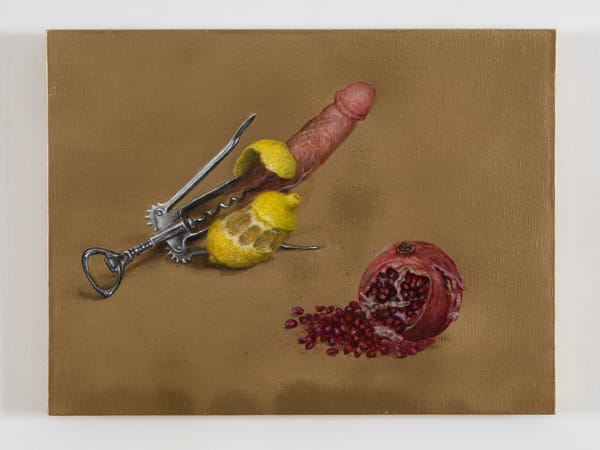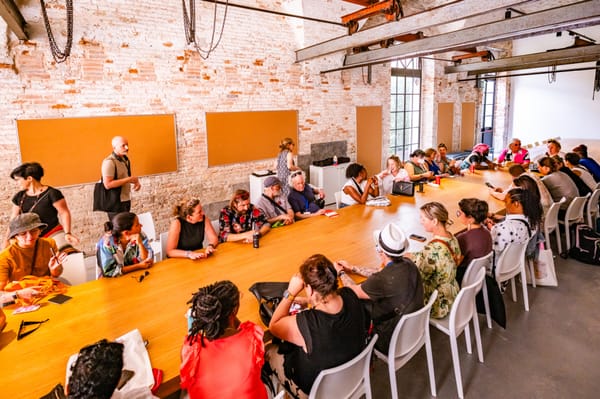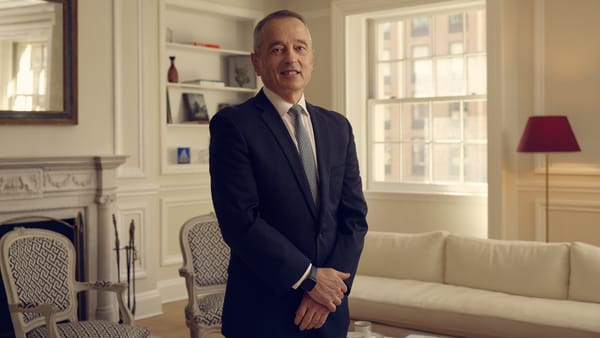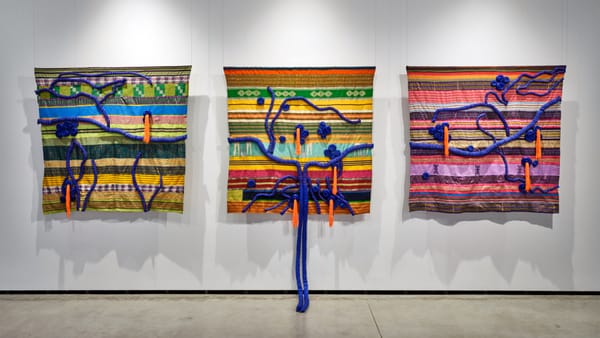Art Rx
This week, lots of talks, discussions, and conversations to stimulate your intellect — plus a screening of one of the most revered films of all time, Andrei Tarkovsky’s Andrei Rublev.

Last week, the doctor prescribed lots of art openings to work the left side of your brain. This week, it’s right-brain time, and she’s recommending talks, discussions, and conversations to stimulate your intellect.
For those interested in the academic track, start the week off with a talk about the way our biases affect what we see. Move on from there to a dissection of photos from Gaza and the concept of dispossession, and then round things out with an intriguing lecture called “The Invention of Non-Art.” Alternatively, you can take the artists’ route, with a dialogue between Sharon Hayes and Laura Horelli and a talk by Larry Fink a few days later. There’s also an ArtsTech meetup this week, about how art functions online, and — maybe the doctor’s favorite — a look at NYC in 1993 through the lens of rap. Finally, for those who want a bit more creative stimulation, do yourself a favor and go see one of the most revered films of all time (about a painter, no less), Andrei Tarkovsky’s Andrei Rublev. Three hours of medieval Russia should have you feeling not so bad about the cold here in New York.
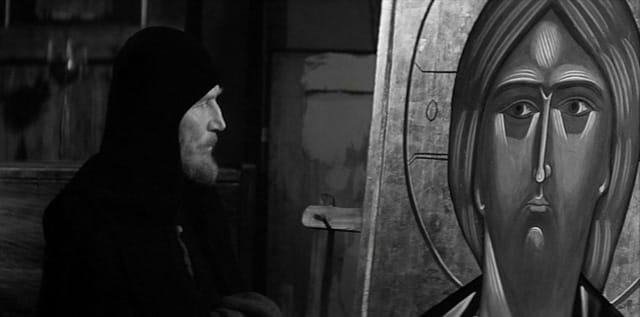

The Bias of Seeing
When: Tuesday, February 19, 5–6 pm
Where: NYU’s Silver Center (100 Washington Square East, Room 101A, Manhattan)
Art is largely something we see, but what does the process of seeing actually entail? And how do our personal inclinations, desires, and aesthetics inform the way we see and respond to something? Emily Balcetis, assistant professor of psychology at NYU, will talk about the psychological biases in visual perception. With the goal of shaking up our personal senses of reality, Balcetis will unravel what it means to “see what we want to see, rather than how it really is.” —AW

Brooklyn Commons
When: Tuesday, February 19, 6:30 pm
Where: International Studio & Curatorial Program (1040 Metropolitan Avenue, East Williamsburg, Brooklyn)
For the latest event in its Brooklyn Commons series, which involves pairing established Brooklyn artists with ISCP residents, artists Sharon Hayes and Laura Horelli will discuss “the role of documentary practices in relation to language, politics and the intersection of public and private domains.” Hayes, who had a show at the Whitney Museum last year, and Horelli, who’s based in Berlin, are both interested in acts of speech and storytelling and the way narratives can make the personal political (and vice versa).

Life After Death
When: Wednesday, February 20, 6:30 pm
Where: Wood Auditorium, Avery Hall, Columbia University (1172 Amsterdam Avenue, Morningside Heights, Manhattan)
Kent Klich’s extraordinary photographs capture daily scenes of life — and its absence — in Gaza after the 2008–09 bombardment. Klich’s pictures are a powerful addendum to the war photography of the region, documenting abandoned homes and landscapes and capturing what life after death truly looks like. Philosopher and gender theorist Judith Butler will discuss these images and the larger issue of dispossession at Columbia University. The event is expected to be full and priority seating will be given to Columbia students, but overflow spaces will be available. —AW

Corrupt Russia
When: Wednesday, February 20, 7 pm
Where: 287 Spring (South Village, Manhattan)
Misha Friedman’s exhibition PHOTO51 – Is Corruption in Russia’s DNA? features a photographic series documenting corruption in Russian culture. In addition to the show, 287 Spring will screen three films that explore the issue historically, and Wednesday night is Andrei Tarkovsky’s Andrei Rublev, called “the best arthouse film of all time” by critic Steve Rose in the Guardian. The movie depicts the life of an icon painter living through the chaos of 15th-century Russia, a period scarred by endless fighting and war. A grim and poetic film in which very little actually happens, Andrei Rublev, in Rose’s words again, “is not a film that needs to be processed or even understood, only experienced and wondered at.” —KP

How Does Art Work Online?
When: Wednesday, February 20, 7 pm ($10)
Where: Huge (45 Main Street, #220, Dumbo, Brooklyn)
ArtsTech devotes its monthly meetup for February to the question of how art operates in the digital ecosystem of the internet. “In a setting that privileges and rewards content with mass appeal and a meme-ready aesthetic, how does the creative practice of artists working on the internet conform to or defy these rules?” And how much do Facebook “likes” and Tumblr reblogs really mean? Participants include Lindsay Howard, curatorial director of East Williamsburg multimedia space 319 Scholes, and Marina Galerina, art editor and blogger at Animal.
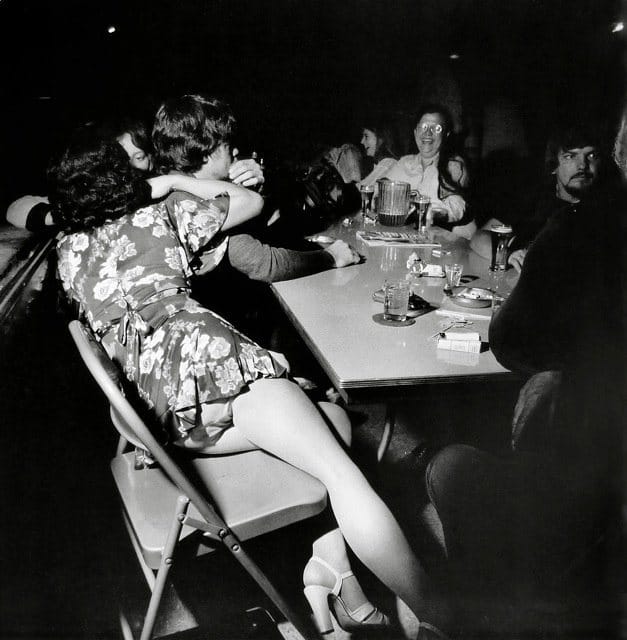

The Invention of Non-Art
When: Friday, February 22, 6:30 pm
Where: Stony Brook Manhattan (101 East 27th Street, 3rd floor, Flatiron, Manhattan)

NYC 1993 in Rap
When: Friday, February 22, 7 pm
Where: New Museum (235 Bowery, Lower East Side, Manhattan)
 Photographer and Subject
Photographer and Subject
When: Saturday, February 23, 2–4 pm ($5, free with student ID)
Where: Aperture Gallery and Bookstore (547 West 27th Street, Chelsea, Manhattan)
On Saturday, Larry Fink give an an artist talk at Aperture, concentrating on the relationships between subject and photographer as well as style and meaning. Over the past nearly half century, Fink has become known for his candid black-and-white photographs of people attending parties and other social gatherings. However offhand they seem, though, the photos are taken during highly orchestrated events, and they succeed in revealing the follies of the human condition. —KP

Dancing Seminar
When: Sunday, February 24, 12–3 pm
Where: MoMA PS1 (22-25 Jackson Avenue, Long Island City, Queens)
* * *
With listings by Kyle Petreycik, JD Siazon, and Arianne Wack

